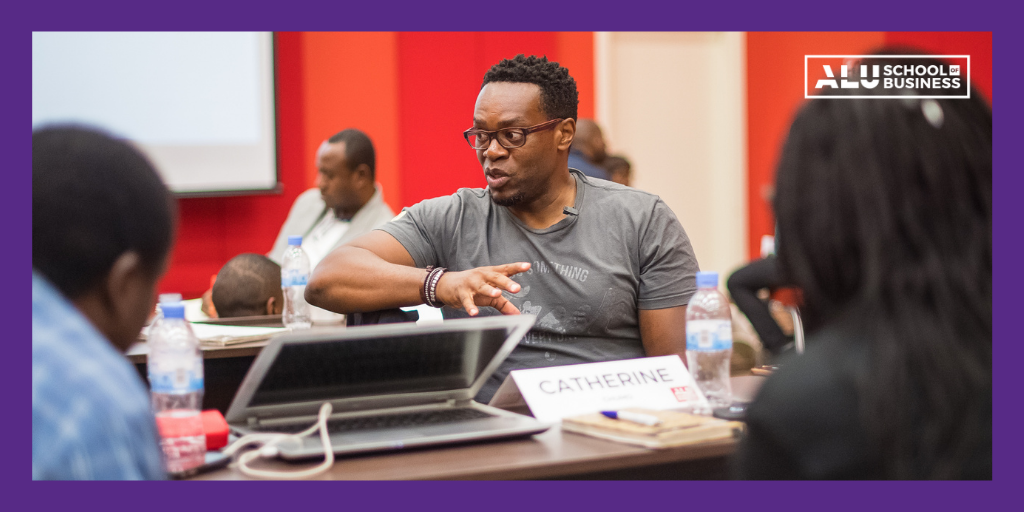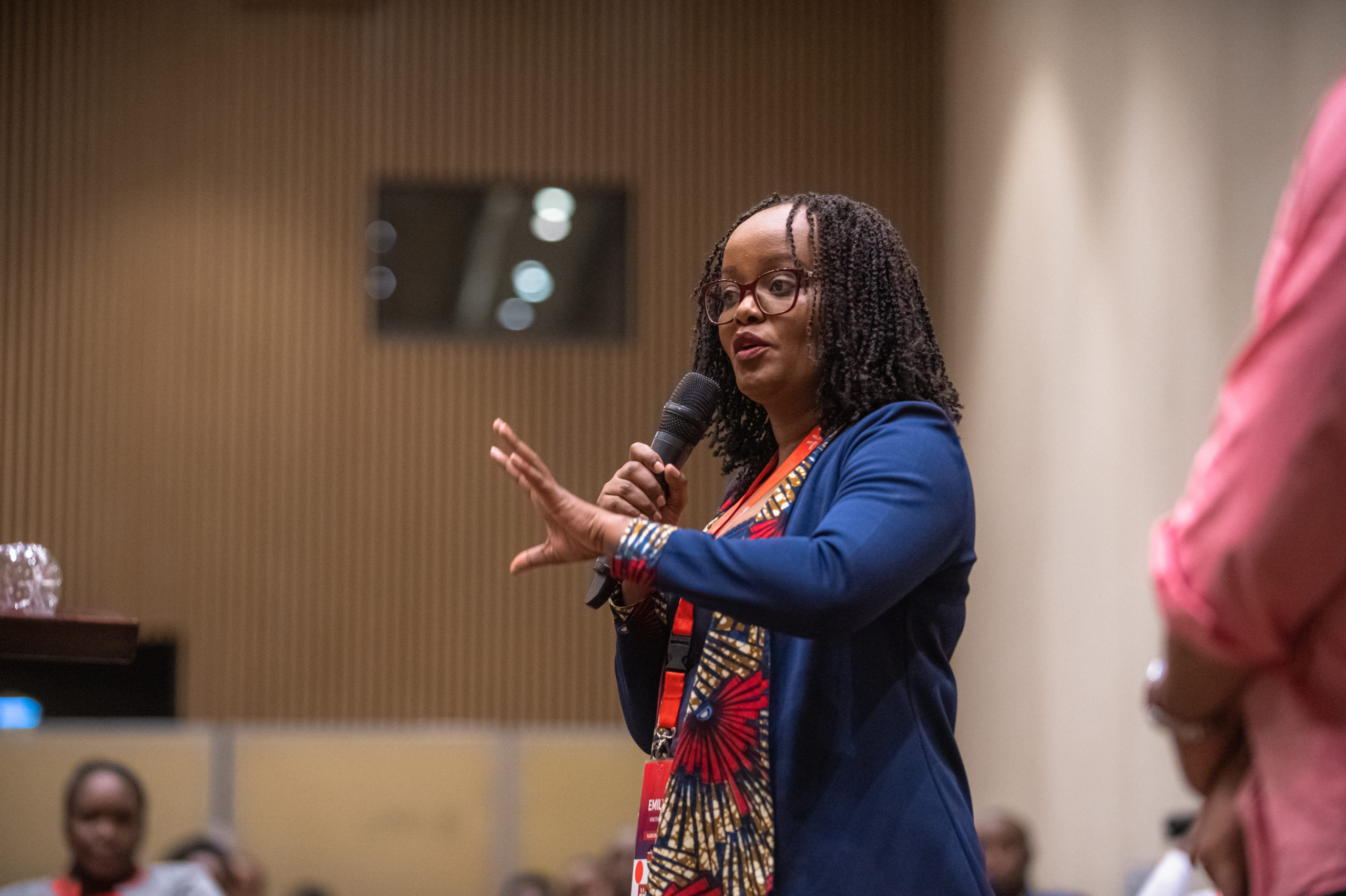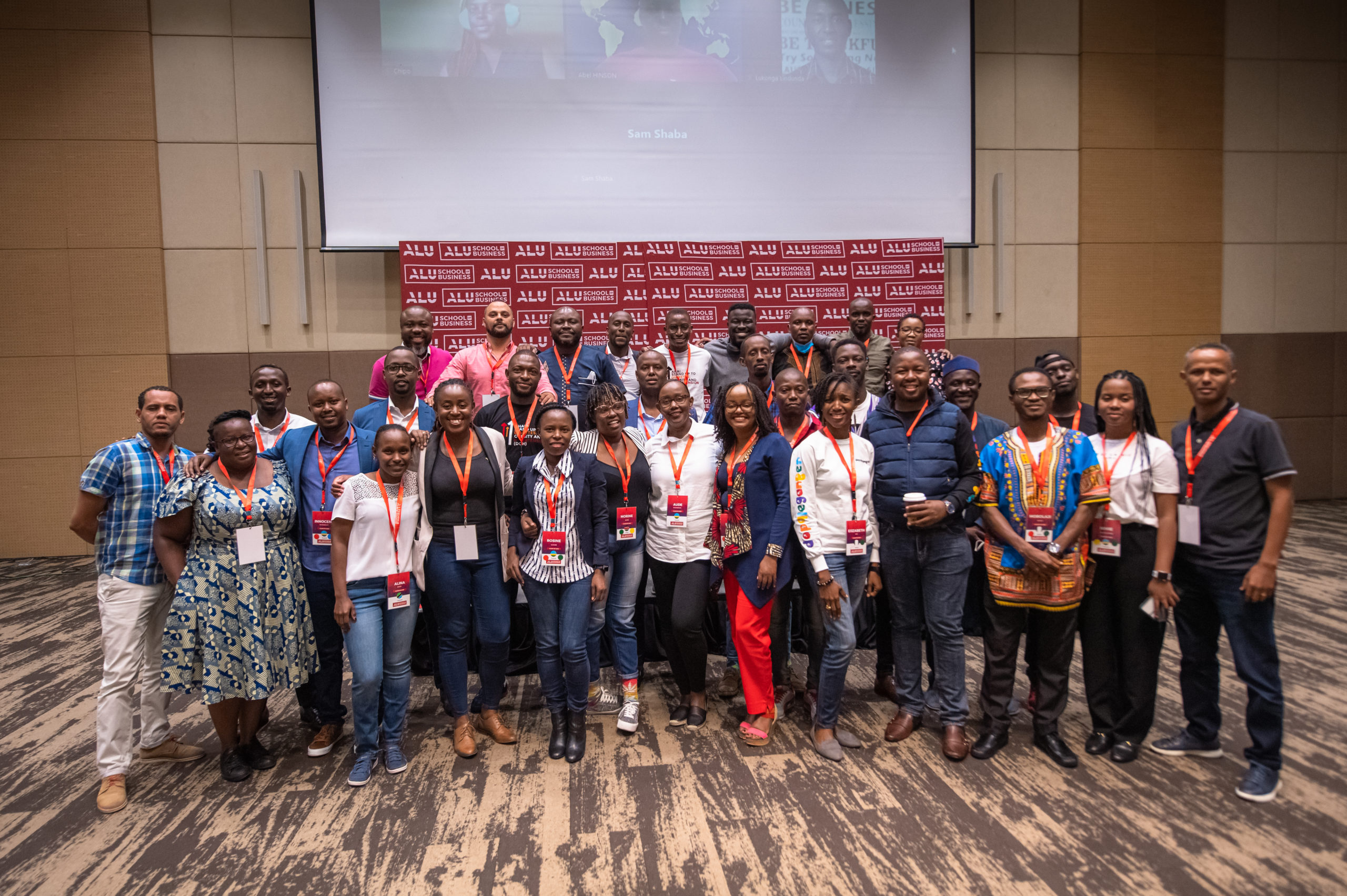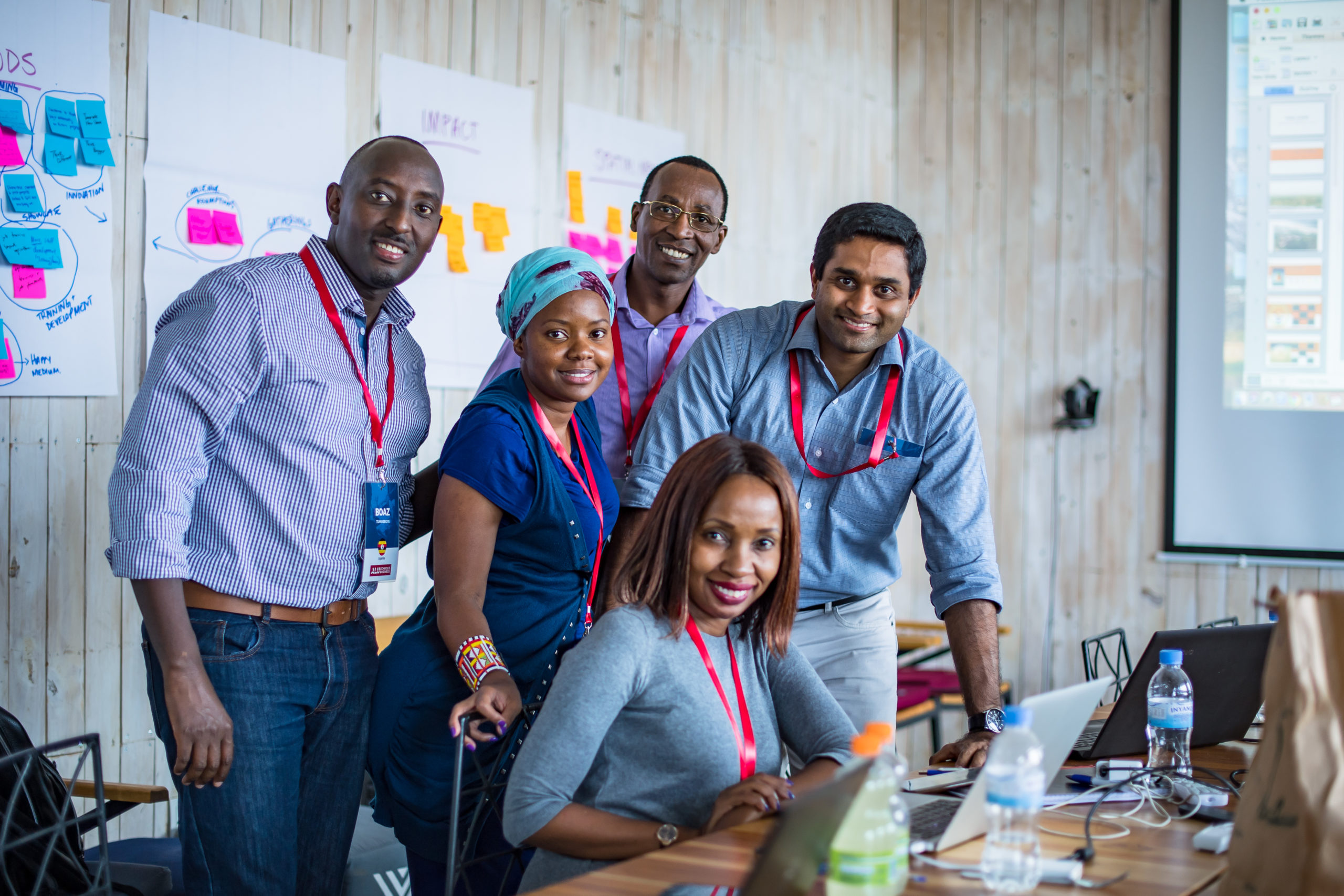Author: JerryLynn Kariuki, Intern, ALU School of Business
The COVID-19 pandemic has created the largest disruption of education systems in history. Students and teachers have had to adapt to the world of virtual learning; a world that comes with its own set of challenges. Luckily, Chidi Afulezi, ALUSB’s Head Faculty for Product, Innovation and Entrepreneurship, is no stranger to challenges and he took this one head-on. We caught up with Chidi to learn more about his experience as an educator during a pandemic and get some tips on how to make the most out of virtual learning.
Q. How has COVID-19 impacted your work as an educator?
Chidi: One of the main impacts has been losing the personal face to face connection I previously had with my MBAs. It’s not possible to truly replace the particular aspects of in-person learning, such as body language or feeling the tension in a room when navigating difficult conversations.
Fortunately, ALUSB had already stepped up with virtual learning. The virtual learning experience was made more comfortable by hosting webinars, using emails and other platforms to communicate with students. I believe the broader ALU community is looking up to ALUSB as a benchmark for how we do virtual learning. As a faculty member, I am proud to know that it is not just the MBA’s who are getting some form of instruction but the whole ALUSB community is learning. I believe that among the many offerings, this element makes ALUSB an exemplary learning institution.
Additionally, this experience has prompted me to up my game in terms of the equipment, technology and tools I need to provide an engaging learning experience. Looking at it from teaching methodology, I had to find ways to bring empathy, energy, kindness and firmness to support my students through this challenging time and ensure we produce bonafide MBAs.
Q. What are the benefits of online learning/teaching?
Chidi: Through virtual learning, there are opportunities to bring more people into the classrooms.
There is also an opportunity to combine classes and to extend the executive education classes, not just to our students but to other corporate organisations.
Moreover, going virtual has allowed me to be with my family. While travelling was exciting, spending more time with my family has been a blessing which I genuinely appreciate, and I consider this a benefit of the transition to virtual learning.
Q. What are your highlights from our second online intensive this past July?
Chidi: The first thing I can point out is the ALUSB Operations team who stars in their execution of the virtual intensives. The group organised and ran a world-class virtual learning experience that was engaging for both the educators and the students.
My second highlight was the interaction with students, especially during the capstone presentations where they shared some of the projects they have been working on to solve challenges they have identified all over the continent and in different sectors. It was a learning experience for me too, and I felt inspired by their excellent work.
Q. What is your prediction for the education sector post-COVID-19?
“The education sector in the world, and more specifically on the African continent, is about to see some significant disruption.”
Chidi: The education sector in the world, and more specifically on the African continent, is about to see some significant disruption. Essentially, COVID-19 is an accelerant rather than a change agent. Previously, the changes happening in the education sector were moving at a slower pace. But with COVID-19, I anticipate the acceleration of significant shifts in the industry. I believe we are going virtual, and this will translate to more students having access to education.
Notably, this is predicated by the availability of supportive infrastructures such as internet connectivity and electricity. Universities and other physical structures will not disappear as these too have their significance in society. However, virtual education may become more predominant.
In addition to this, educators will need to be exceptional at what they do to attract the kinds of people who stick around virtually. This will be an opportunity to highlight the ‘superstars’ who can deliver instruction and teach via virtual mediums.
Finally, Chidi shared the following practical tips to make the most out of online teaching:
- You have to be interesting. While delivering content virtually, you need to make the delivery of your content exciting and simplified. An educator needs to be very engaged to ensure that students don’t get disengaged. This could mean having visual content that is well thought out and keeping your energy levels high.
- Get the right tools. Improve your delivery by ensuring that you have the right equipment to deliver online learning.
- Learn from other educators who are doing well.
- Find something that your students and team can look forward to. It is important to have something that brings you together and lifts your energy levels.
Want to read more stories from our ALUSB community? Here are some links to get you started:
- INTRODUCING THE ALUSB MASTER OF MANAGEMENT PROGRAMME
- HOW TO SUCCESSFULLY START A NEW JOB REMOTELY
- THE ALUSB MBA ONLINE INTENSIVE WEEK: HIGHLIGHTS AND TAKEAWAYS
Applications to join our MBA classroom in March 2021 are now open! Start your application today at: http://bit.ly/APPLYNOWM21 !







